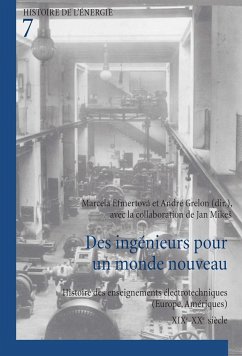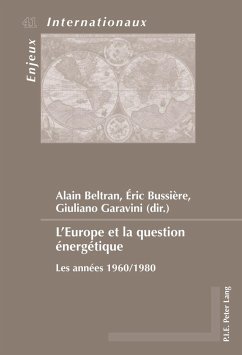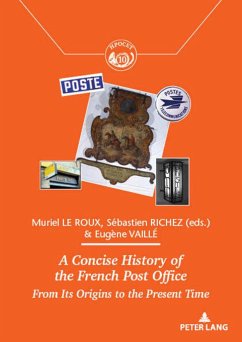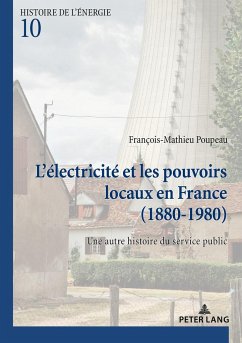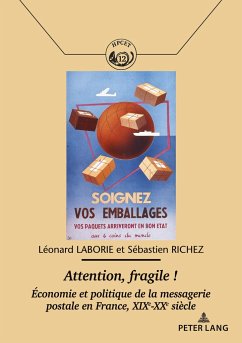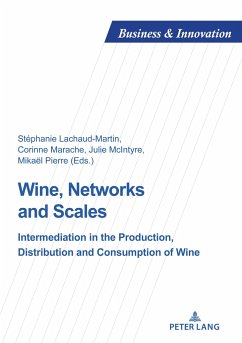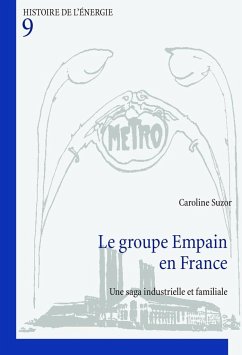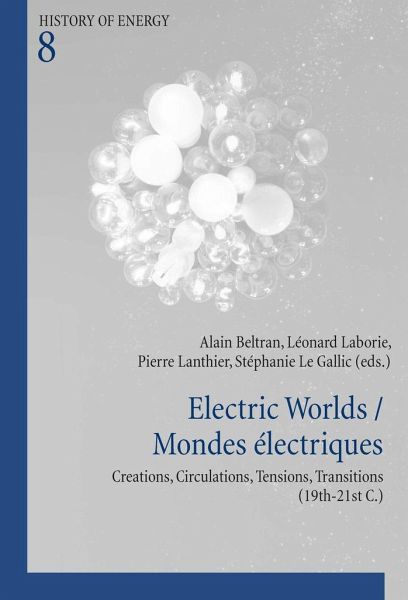
Electric Worlds / Mondes électriques
Creations, Circulations, Tensions, Transitions (19th-21st C.)
Herausgegeben: Comité d'Histoire de la fondation EDF; Beltran, Alain; Laborie, Léonard; Lanthier, Pierre; Le Gallic, Stéphanie

PAYBACK Punkte
0 °P sammeln!
What interpretation(s) do today's historians make of electrification? Electrification is a process which began almost a hundred and fifty years ago but which more than one billion men and women still do not have access to. This book displays the social diversity of the electric worlds and of the approaches to their history. It updates the historical knowledge and shows the renewal of the historiography in both its themes and its approaches. Four questions about the passage to the electrical age are raised: which innovations or combination of innovations made this passage a reality? According t...
What interpretation(s) do today's historians make of electrification? Electrification is a process which began almost a hundred and fifty years ago but which more than one billion men and women still do not have access to. This book displays the social diversity of the electric worlds and of the approaches to their history. It updates the historical knowledge and shows the renewal of the historiography in both its themes and its approaches. Four questions about the passage to the electrical age are raised: which innovations or combination of innovations made this passage a reality? According to which networks and appropriation? Evolving thanks to which tensions and alliances? And resulting in which transition and accumulation?
Quel(s) regard(s) les historiens d'aujourd'hui portent-ils sur l'électrification, processus engagé il y a près de cent cinquante ans mais auquel plus d'un milliard d'hommes et de femmes restent encore étrangers ? Le présent volume rend compte de la diversité des mondes sociaux électriques et des manières d'enquêter sur leur histoire. Il actualise les connaissances et témoigne du renouvellement de l'historiographie, dans ses objets et ses approches. Quatre points d'interrogation sur le basculement des sociétés dans l'âge électrique jalonnent le volume : moyennant quelles créations ou combinaisons créatrices ? En vertu de quelles circulations et appropriations ? Selon quelles tensions et alliances ? Et produisant quelles transitions et accumulations ?
Quel(s) regard(s) les historiens d'aujourd'hui portent-ils sur l'électrification, processus engagé il y a près de cent cinquante ans mais auquel plus d'un milliard d'hommes et de femmes restent encore étrangers ? Le présent volume rend compte de la diversité des mondes sociaux électriques et des manières d'enquêter sur leur histoire. Il actualise les connaissances et témoigne du renouvellement de l'historiographie, dans ses objets et ses approches. Quatre points d'interrogation sur le basculement des sociétés dans l'âge électrique jalonnent le volume : moyennant quelles créations ou combinaisons créatrices ? En vertu de quelles circulations et appropriations ? Selon quelles tensions et alliances ? Et produisant quelles transitions et accumulations ?




